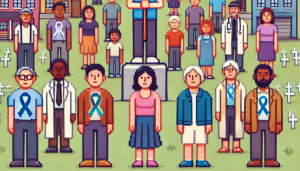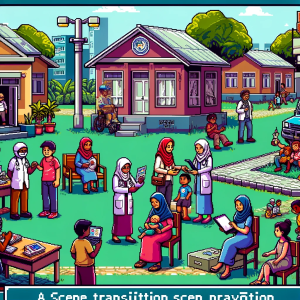
Building Health Systems from the Ground Up with CHWs
When you imagine the backbone of global healthcare, you might picture bustling hospitals or advanced medical technology. But some of the most significant health advancements start at the community level, powered by a group of often-overlooked heroes: community health workers (CHWs). These individuals, trained to provide essential health services in their communities, are proving that effective healthcare doesn’t always need to happen in a clinic or hospital—it can happen right at home.
CHWs are on the frontlines of improving health worldwide. From reducing maternal and child mortality to battling noncommunicable diseases (NCDs) and responding to global pandemics like COVID-19, CHWs are transforming healthcare. Yet, despite their proven impact, CHW programs face critical challenges that limit their potential.
Let’s explore why CHWs are the heart of public health systems, the obstacles they face, and how we can amplify their impact to build stronger, healthier communities.
CHWs: A Pillar of Health Systems
Community health workers aren’t just healthcare providers—they are neighbors, advocates, and problem solvers. They bring healthcare to the hardest-to-reach places and populations, often where formal health systems fall short. CHWs in countries like Bangladesh, Brazil, Ethiopia, Nepal, and Rwanda have made remarkable strides in improving population health. They save lives, promote preventive care, and empower communities to take charge of their health.
Take Ethiopia as an example. With a robust CHW program integrated into its primary healthcare system, Ethiopia reduced child and maternal deaths and achieved significant progress toward universal health coverage. This story is just one of many that show the transformative potential of CHWs when they’re given adequate support and resources.
Challenges That Threaten Their Success
Despite their contributions, CHWs often operate under challenging conditions. Here are the most pressing issues:
- Inadequate Funding: Many CHW programs rely on external donors rather than sustainable domestic financing. Without stable funding, programs can’t expand or improve.
- Supply Chain Disruptions: Interruptions in the availability of basic supplies and medicines leave CHWs without the tools they need to do their jobs.
- Poor Compensation and Support: CHWs are frequently underpaid or volunteer their time, leading to burnout and high turnover. Adequate supervision and mentorship are also lacking in many programs.
These barriers hinder CHWs’ ability to deliver consistent, high-quality care. Without addressing them, we risk losing one of the most cost-effective tools in global health.
Strengthening CHW Programs: What Needs to Happen
The good news is that solutions are within reach. By addressing these challenges, we can unleash the full potential of CHW programs:
- Secure Sustainable Funding: Governments and donors must prioritize CHW programs as integral components of health systems. Investing in these programs yields high returns, improving not only health outcomes but also socioeconomic development.
- Provide Tools and Supplies: Reliable supply chains are critical. When CHWs have the medicines, equipment, and personal protective gear they need, they can respond effectively to community health needs.
- Fair Compensation and Career Pathways: CHWs deserve to be recognized and compensated as valued members of the health workforce. Clear career pathways and ongoing training can motivate and retain CHWs while improving the quality of care.
- Stronger Supervision and Data Systems: Supportive supervision, combined with the use of digital tools, can improve CHW performance and accountability. Monitoring and evaluation systems should focus not just on health outcomes but also on how programs can be continuously improved.
CHWs: The Key to Future Health Challenges
As we look ahead, CHWs will play a vital role in addressing emerging health challenges. From tackling NCDs to responding to future pandemics, they are uniquely positioned to act as the link between communities and health systems.
For example, during the COVID-19 pandemic, CHWs educated communities traced contacts and supported vaccination efforts, often at great personal risk. Their contributions underscore the importance of having trained, well-equipped health workers embedded in communities.
CHWs are also essential for achieving global health goals, including universal health coverage and reducing health inequities. By investing in CHW programs now, we can create resilient health systems that leave no one behind.
Why It Matters Now
The moment is ripe for action. CHWs are at the dawn of a new era, gaining the recognition they’ve long deserved. But recognition isn’t enough. To truly support CHWs, we need to move from rhetoric to investment—both financial and political.
Imagine a world where every household has access to a trained CHW, where no one dies from preventable diseases, and where health systems prioritize equity and community engagement. This vision is possible, but it requires collective action.
Join the Conversation
What role do you see community health workers playing in your community?
How can public health practitioners and researchers better support CHW programs?
Be Part of the Change – Get Weekly Updates!
Stay informed and connected. Subscribe for free and share this blog to make a difference in public health with others. If you liked this blog, please share it! Your referrals help This Week in Public Health reach new readers.



